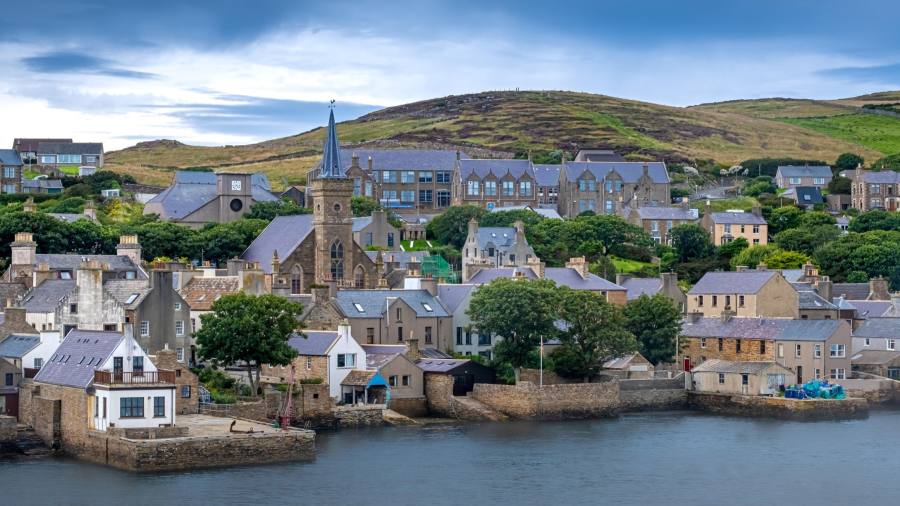
Receive free Scotland updates
We’ll send you a myFT Daily Digest email rounding up the latest Scotland news every morning.
The campaign for Scottish independence may have stalled in recent months but Orkney, with a population of about 22,000, is preparing its own bid for greater freedom after a historic vote by councillors.
Orkney is a fiercely independent archipelago of high cliffs, seal colonies and both Neolithic and Viking burial sites that lies just north of the Scottish mainland. With a long history of fishing, it prospered from the discovery of North Sea oil in the 1960s and from the more recent growth of offshore wind farms.
On Tuesday, councillors on the islands voted by 15 votes to six on a motion to investigate alternative methods of governance. James Stockan, council leader, said the area had been “held down” and criticised both the Scottish and UK governments.
As a result of the vote, council officers will now draw up a report looking at various options of governance. Stockan urged councillors to back his proposal to give Orcadians, residents of the islands, greater financial and economic opportunities.
Orkney belonged to Norway until 1472, when it became part of Scotland after it was used as security for the wedding dowry of Margaret of Denmark, future wife of King James III of Scotland.
Stockan suggested restoring the archipelago’s “Nordic connections” and insisted that the motion was not about joining Norway. “There is a far bigger suite of options here, this could even be that we could get our money direct from the Treasury in London and look after our own future,” he said.
“We have been held down . . . in terms of discrimination against this community from governments.”
Stockan put forward a paper suggesting options including the “Faroe Islands model” — the Faroes are a self-governing territory of Denmark — or emulating Britain’s Crown Dependencies, such as Jersey and Guernsey in the Channel Islands.
“I am not proposing this motion with the expressed desire to break up anything,” he said. “The motion has got every option in it so it can be explored. Nothing is off the table. If the motion had come forward without every option on the table, what kind of motion would that have been?”
A spokesperson for UK prime minister Rishi Sunak in Downing Street, nearly 800 miles from the islands, said Britain was “stronger united” and questioned their ability to break away.
“First and foremost there is no mechanism for the conferral of Crown Dependency or Overseas Territory status on any part of the UK,” he said.
“We have no plans to change the devolution settlement, we are supporting Orkney with £50mn to grow the economic prosperity of the Scottish islands, through the islands deal.”
Stockan’s view was backed by another councillor, Duncan Tullock, who said the area was “living off crumbs” after a series of broken promises from the mainland.
But councillor Steven Heddle criticised Stockan’s “politics of grievance” and claimed that roads in Edinburgh were even worse than Orkney’s.
Another councillor, David Dawson, described some of the proposals as “daydreams” and added: “Let me caution you with one word,” he said. “Brexit.”